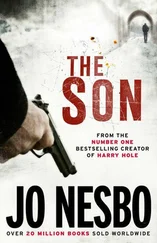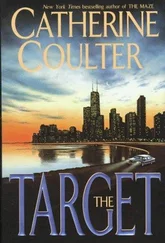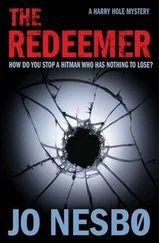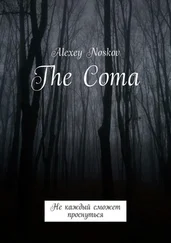Jo Nesbo - The Thirst
Здесь есть возможность читать онлайн «Jo Nesbo - The Thirst» весь текст электронной книги совершенно бесплатно (целиком полную версию без сокращений). В некоторых случаях можно слушать аудио, скачать через торрент в формате fb2 и присутствует краткое содержание. Год выпуска: 2017, ISBN: 2017, Издательство: Random House, Жанр: Триллер, на английском языке. Описание произведения, (предисловие) а так же отзывы посетителей доступны на портале библиотеки ЛибКат.
- Название:The Thirst
- Автор:
- Издательство:Random House
- Жанр:
- Год:2017
- ISBN:9781911215288
- Рейтинг книги:5 / 5. Голосов: 1
-
Избранное:Добавить в избранное
- Отзывы:
-
Ваша оценка:
- 100
- 1
- 2
- 3
- 4
- 5
The Thirst: краткое содержание, описание и аннотация
Предлагаем к чтению аннотацию, описание, краткое содержание или предисловие (зависит от того, что написал сам автор книги «The Thirst»). Если вы не нашли необходимую информацию о книге — напишите в комментариях, мы постараемся отыскать её.
The Thirst — читать онлайн бесплатно полную книгу (весь текст) целиком
Ниже представлен текст книги, разбитый по страницам. Система сохранения места последней прочитанной страницы, позволяет с удобством читать онлайн бесплатно книгу «The Thirst», без необходимости каждый раз заново искать на чём Вы остановились. Поставьте закладку, и сможете в любой момент перейти на страницу, на которой закончили чтение.
Интервал:
Закладка:
‘I didn’t know this restaurant was here,’ she said. ‘Very quiet.’
‘T-too quiet?’ he smiled.
‘It’s nice.’
‘Next time we can go to this place I know that serves Kirin beer and black rice,’ he said. ‘If you like that.’
She very nearly squealed. This was fantastic. How could he know that she loved black rice? Most of her friends didn’t know it even existed. Roar had hated it, he said it tasted of health-food shops and snobbery. And, to be fair, those were both fair accusations: black rice contained more antioxidants than blueberries and was served alongside the forbidden sushi that was reserved for the emperor and his family.
‘I love it,’ she said. ‘What else do you like?’
‘My job,’ he said.
‘Which is?’
‘I’m a visual artist.’
‘How exciting! What …?’
‘Installations.’
‘Roar – my ex – he was a visual artist too, perhaps you know him?’
‘I doubt it, I operate outside conventional artistic circles. And I’m self-taught, so to speak.’
‘But if you can make a living as an artist, it’s odd that I haven’t heard of you. Oslo’s so small.’
‘I do other things to survive.’
‘Such as?’
‘Caretaker.’
‘But you exhibit?’
‘It’s mostly private installations for a professional clientele, where the press aren’t invited.’
‘Wow. It sounds great that you’re able to be exclusive. I told Roar that he ought to try that. What do you use in your installations?’
He wiped his glass with a napkin. ‘Models.’
‘Models as in … living people?’
He smiled. ‘Both. Tell me about yourself, Penelope. What do you like?’
She put a finger under her chin. Yes, what did she like? Right now she had a sense that he had covered everything.
‘I like people,’ she said. ‘And honesty. And my family. Children.’
‘And being held, tight,’ he said, glancing over at the couple who were sitting two tables away from them.
‘Sorry?’
‘You like being held tight, and playing rough games.’ He leaned across the table. ‘I can see it in you, Penelope. And that’s fine, I like that too. This place is starting to get a bit crowded, so shall we go back to yours?’
It took Penelope a moment to realise that it wasn’t a joke. She looked down and saw that he had put his hand so close to hers that their fingertips were almost touching. She swallowed. What was it about her that meant she always ended up with nutters? It was her friends who had suggested that the best way to get over Roar was to meet other men. And she had tried, but they were either bumbling, socially inadequate IT nerds where she had to do all the talking, or men like this one, who were only after a quick shag.
‘I think I’ll go home alone,’ she said, and looked around for the waiter. ‘I’m happy to settle up.’ They had barely been there twenty minutes, but according to her friends, that was the third, and most important, rule of Tinder: Don’t play games, leave if you don’t click .
‘I can manage two bottles of mineral water,’ the man smiled, and tugged gently at his pale blue shirt collar. ‘Run, Cinderella.’
‘In that case, thank you.’
Penelope picked up her bag and hurried out. The sharp autumn air felt good against her warm cheeks. She crossed Bogstadveien. Because it was Saturday night the streets were full of happy people and there was a queue at the taxi rank. Which was just as well – the price of taxis in Oslo was so high that she avoided them unless it was pouring with rain. She passed Sorgenfrigata, where she had once dreamt that she and Roar would some day live in one of the lovely buildings. They had agreed that the flat didn’t need to be more than seventy or eighty square metres in size, as long as it had been recently renovated, the bathroom at least. They knew that it would be incredibly expensive, but both her and Roar’s parents had promised to help out financially. And by ‘help out’ they obviously meant paying for the whole flat. She was, after all, a recently qualified designer on the hunt for a job, and the art market hadn’t yet discovered Roar’s immense talent. Except that bitch of a gallery owner who had set her trap for him. After Roar moved out, Penelope had been convinced that he would see through the woman, realise she was a wrinkled puma who just wanted a young trophy boyfriend to play with for a while. But that hadn’t happened. On the contrary, they had just announced their engagement in the form of a hideous art installation made of candyfloss.
At the metro station in Majorstua Penelope took the first train heading west. She got off at Hovseter, known as the eastern edge of the west side of the city. A cluster of apartment blocks and relatively cheap flats where she and Roar had rented the cheapest they could find. The bathroom was disgusting.
Roar had tried to console her by giving her a copy of Patti Smith’s Just Kids , an autobiographical account of two ambitious artists living on hope, air and love in New York in the early 1970s, and who obviously end up making a success of things. OK, they lost each other along the way, but …
She walked from the station towards the building rising up in front of her, which looked like it had a halo. Penelope realised that there was a full moon tonight, that must be what was glowing behind the building. Four. She had slept with four men since Roar left her, eleven months and thirteen days ago. Two of them had been better than Roar, two worse. But she didn’t love Roar for the sex. But because … well, because he was Roar, the bastard.
She found herself quickening her pace as she passed the little clump of trees on the left-hand side of the road. The streets of Hovseter grew empty early each evening, but Penelope was a tall, fit young woman, and until now it hadn’t even occurred to her that it might be dangerous to walk here after dark. Perhaps it was because of that murderer who was in all the papers. No, it wasn’t that. It was because someone had been inside her flat. It was three months ago now, and at first she had dared to hope that Roar had come back. She realised someone had been there when she found mud in the hallway that didn’t match her shoes. And when she found some more in the bedroom, in front of the chest of drawers, she had counted her knickers in the idiotic hope that Roar had taken a pair. But no, that didn’t seem to be the case. Then she realised what was missing. The engagement ring in its box, the one Roar had bought her in London. Could it just have been a run-of-the-mill burglary, after all? No, it was Roar. He had snuck in and taken it, and had given it to that bitch of a gallery owner! Naturally, Penelope had been furious, and had called Roar and confronted him with it. But he swore he hadn’t been back, and claimed to have lost the keys to the flat during the move, because otherwise he would have posted them to her. A lie, of course, like everything else, but she had still gone to the effort of getting the locks changed, both the front door and the door to her flat on the fourth floor.
Penelope took her keys out of her handbag – they were next to the pepper spray she had bought – unlocked the front door, heard the low hiss of the hydraulics as it swung behind her, saw that the lift was on the sixth floor, and started to walk up the stairs. She passed the Amundsens’ door. Stopped. Felt that she was out of breath. Funny, she was in good shape, these stairs had never tired her out before. Something was wrong. What?
She stared up at the door to her flat.
It was an old building, built for the working classes of western Oslo, now long gone, and they had been sparing with the lighting. There was just one large, metal-framed light on each floor, jutting out from high up on the wall above the stairs. She held her breath and listened. She hadn’t heard a sound since she came into the building.
Читать дальшеИнтервал:
Закладка:
Похожие книги на «The Thirst»
Представляем Вашему вниманию похожие книги на «The Thirst» списком для выбора. Мы отобрали схожую по названию и смыслу литературу в надежде предоставить читателям больше вариантов отыскать новые, интересные, ещё непрочитанные произведения.
Обсуждение, отзывы о книге «The Thirst» и просто собственные мнения читателей. Оставьте ваши комментарии, напишите, что Вы думаете о произведении, его смысле или главных героях. Укажите что конкретно понравилось, а что нет, и почему Вы так считаете.












